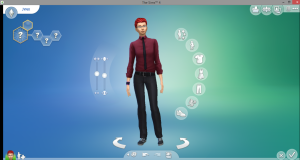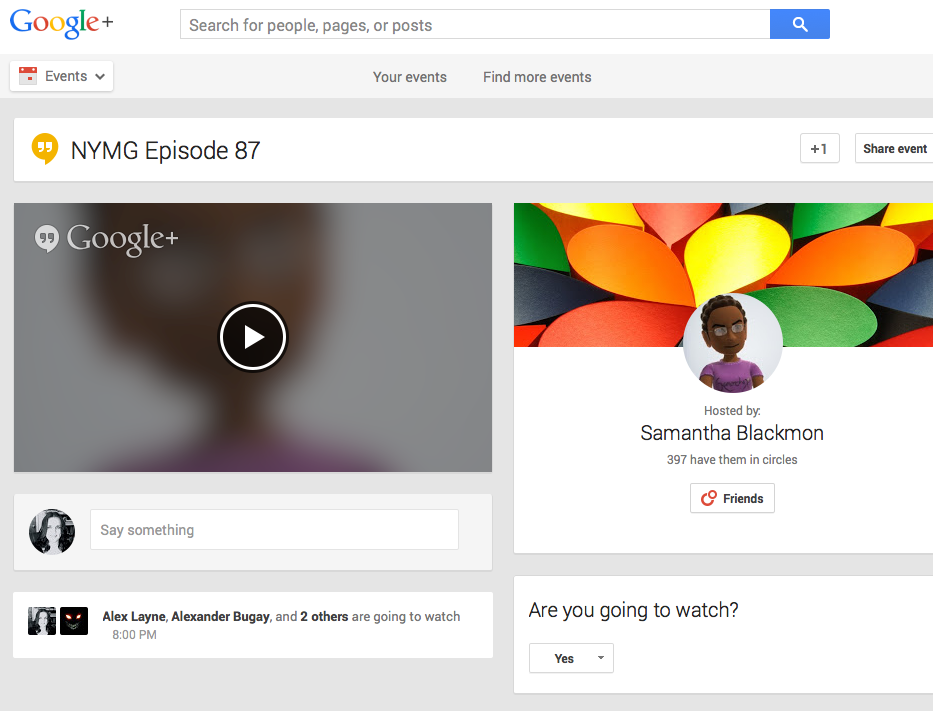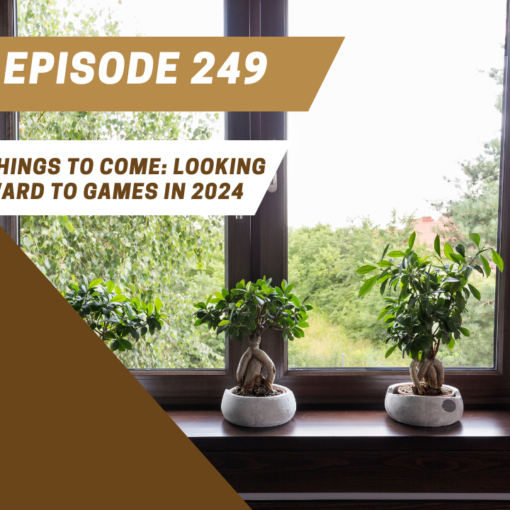Forecast: Not good but getting better. Maybe.
I’ve written before about being nonbinary and considering what that looked like in games and why continued strides in representation matters. This week Laytonya Pennington at BGD looked at Kingdom Hearts Unchained X and offered evidence of why better representation is necessary for nonbinary gamers. Pennington nails it in her article when she writes:
“Studies show that customizable avatars can help players create their ideal selves and have their avatars impact their real life selves. If playing a free video game can help me figure out my gender expression as well as give me a break from reality without getting rid of the usual gameplay, then those already represented shouldn’t get so upset.”
And we see that happen all the time. The folks who are already represented throw a stink because something that allows for others to be represented shows up. Like the whole Baldur’s Gate fiasco back in April. In the expansion, Baldur’s Gate: Siege of Dragonspear, a transgender character was introduced and then proceeded to be destroyed by a vocal minority who were spurred on by a reference to Gamergate made by the developers. Sure, the update was buggy, and no one should be happy when developers release a game or expansion that lags a lot, but the main complaints seemed to be “why is there a transgender character in my video game?!” first (typically followed by slurs), and complaints about bugs second.
Like Pennington over at BGD, or myself and most of the bloggers here at NYMG, have said: gaming does not exist in a vacuum. It truly does have impact within the so-called “real” world. And that makes positive representation even more important.
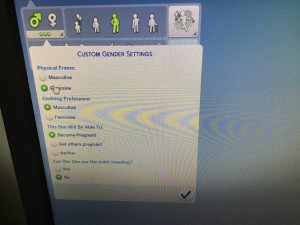
In the last week, EA announced that they are ungendering content in the latest Sims 4 update, effectively allowing players to be able to make transgender sims. This is tremendous news. Also tremendous news is that the folks over at Maxis worked with GLAAD on this update. Unfortunately, the update does not yet cover custom content.
In the new update, gender can be changed at any time. This means people can actually transition sims from male to female, or female to male, in game. Their transition can become a part of their in-game narratives. Finally, nonbinary people can make sims that reflect them. The possibilities are AMAZING.
The fact that they are removing gender restrictions is amazing. They’re not just saying “well, girls can wear boys clothes sometimes, or boys can wear girls clothes sometimes.” They’ve switched things to “masculine style” and “feminine style.” Personally, I think they should just call everything “clothes” and maybe define the cut, but hey. It’s a start.
Having played a lot of Sims since its debut in 2000, I can remember struggling to reflect myself in the game. And hell, this was before I even realized what “trans” was. It was not talked about in my household. But man, I always made the most tomboyish character you could. Short hair, combat boots, and camo pants. Because that’s all I had. Everything else was skirts, dresses, and blouses. Ugh.
And of course, there’s backlash (Yay comments section on the Maxis blog, why did I read you). Some people are very angry that toddlers have not been added but gender expression was. Some are complaining about the pandering to the “.3%” and alienating everyone else. From what I understand, these options are just that: options. But apparently, even giving people the choice is a horrible thing.
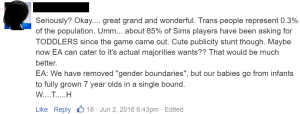
On one hand, I do not really know a lot about coding video games. I know a few things about coding–engineering does that–so I can guess that removing the gender restrictions is probably a bit easier than coding in a whole new program to allow for toddlers. I also think that maybe the people at EA/Maxis should take this into consideration for their updates in the future. And sure, maybe it was a publicity stunt.
But this person–and the many people like them that are so angry that this was the update–seems to think that inclusion is mutually exclusive. That since they are “catering” to the minority, the majority loses something. Or that, if you give the minority anything, the majority is the one that loses out.
“Maybe they should cater to the majority.” This update really isn’t for the majority. This update is for the people who are forgotten in typical updates. Who have been erased in video games, made jokes, or told “you don’t exist.” This game is validation for us.
But, for every negative comment, there are at least ten positive comments where LGBTQ+ advocates and allies alike cheer on the step forward. It’s huge to see a AAA title like The Sims 4 work to reflect all people. They still have a way to go, of course, but this is a tremendous step.
Personally, I’m worried that if the sales of Sims 4 go down, or if EA gets called out enough, they’re going to blame it on the minorities again. They’ve done that before with Dragon Age: Inquisition and Krem, and when they were voted the “worst company” in 2013. (See here, here, and here for examples).
But I’m going to hold out hoping that maybe this is them trying to make right.
The update came out June 2nd and I haven’t gotten to play it yet (if you’ve read any of my other articles, you know that I have the worst track record with games). But, if screenshots are anything to go off of, I think there’s a lot of promise with this. It allows for transpeople to create, potentially, avatars that are more representative of who they are or who they want to be.
Edit: A friend of mine let me borrow their copy of Sims 4 to try out the update. In approximately 10 minutes, I was able to make a rather convincing “female bodied, male presenting” nonbinary sim that looked a lot like me. While the pronouns were still “She/her/hers” instead of “they, them, theirs,” I was really really impressed with what I was able to make.
